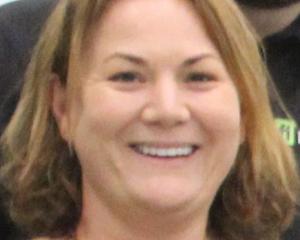When it comes to appointments to boards and senior management roles in New Zealand, Helen Darling says it is about the best person for the job.
In the past 10 years, the proportion of senior roles filled by women had not changed from 31%, against a global average that had increased from 19% to 24%, Grant Thornton New Zealand partner Stacey Davies said.
''In 2004, New Zealand was ranked fourth in the world of the countries surveyed, whereas now we are 15th - that's a big fall. Whereas once we were world leaders, we are now followers and looking likely to fall further behind, going by other indicators in the survey.''
The number of businesses with no women in senior management roles had increased from 26% in 2012 to 32% in 2014, going against the global trend, where there had been a slight decrease from 34% to 33%.
Dr Darling, of Darling and Associates, which provides a bespoke service for food producers, exporters, importers and regulators, is on the boards of the Institute of Environmental Science and Research and Export New Zealand.
She was ''really surprised'' by the research findings and did not believe the situation was as dire as the report made out.
The more innovative and forward-thinking companies and organisations had diverse boards and understood that diversity was the way to be progressive and succeed.
Those that were not open to that were possibly the ones that did not have a sustainable future, she said.
It had to be an equal playing field, regardless of sex, gender, ethnicity, religious beliefs.
''I find it a little bit hard to believe, to be honest, we have gone that far backwards. My experience has been it's the best person for the job,'' Dr Darling said.
Agri Women's Development Trust founder and 2013 Next Business Woman of the Year Lindy Nelson said when applying the research in the agrisector, it needed to be looked at carefully, and she questioned what constituted senior management roles.
''Some of our farming businesses which are run by women as critical farming partners are larger than some of the businesses that could be surveyed here,'' she said.
Many of the female directors within the agrisector sought positions through election.
''So what does this say? Maybe we have come of age and recognise skills and competencies rather than gender? I believe this is happening,'' she said.
Most women she spoke to were not in favour of a quota system. While they wanted the ''tools'' and development opportunities, they wanted to ''earn a place at a table'', not be given it.
''However, we do need to change our lenses on where we seek and find talent and sometimes women can be invisible in these searches,'' she said.
Mrs Nelson cited Chorus, when it developed its new board, as a good example.
''Instead of doing the `who knows who' system, they looked outside of their networks and looked purely for skills and talent, gender exclusive. This actually resulted in a very gender-balanced board.''
What the AWDT was doing was giving women ''the development and wherewithal'' to step up within the sphere of leadership business and governance, using supported growth, programmes, networks, coaching and mentoring.
Confidence was ''big'' for women and the trust's programmes were successful in moving women ''up the pipeline''.
That success could be instantaneous but it could also take time and it needed to be done partnering with men, not excluding them, Mrs Nelson said.
For the trust, it was about giving the support and the tools and ''they'll participate if they want'', she said.
Sometimes, women were not necessarily visible but were hugely influential.
Mrs Nelson believed women would be pivotal in achieving the Government's target of doubling primary exports by 2025.












